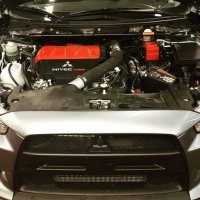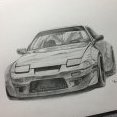Diy Knock Monitor?
Announcements
-
Similar Content
-
Latest Posts
-
Only thing I'd add...is on recommendation from a good diff shop, I've used mineral oil in my diff including the race car for years. The synthetics can be too slippery and glaze the gears
-
By joshuaho96 · Posted
75W90 GL5 is fine. If you aren't sure about the type get one with LSD additive. -
Because you're effectively rushing the shift and forcing it to go in - with greater leverage against parts that don't _want_ to go together. Short shift = forcing the gear in harder. Also Redline Heavy Shockproof actively says not to use it in anything with Synchros. Well, it says "not recommended" which is basically as far as anyone will ever say in a product statement to "Do not use" Generally the Redline makes the gearbox feel great... until it fails faster. https://www.redlineoil.com/heavy-shockproof
-
99.9% of them are viscous diffs. The 0.01% are helicals. They were only option-able in the series 2, as well. I have redline heavy shockproof in my helical. It seems... fine? I don't think anyone is ever going to know until something really breaks and at that point I'm not sure anyone will blame the oil. I just chose it because it's extremely heavy duty and my car will see not-road-legal duty for it. I've also had sadness with various diff oils in the past sweating out everywhere and/or other 'fun' things, with clutch diffs. Given you have a 1.5 way on the shelf, I'd not even bother with the diff in the car and just get to tinkering with it. I would spend the $90 on oil toward the labor of someone else putting the diff in if time poor even lol.
-
By drifter17a · Posted
I believe mine is helical and not clutch type. During drifting one wheel was spining as if it was open diff so bought kazz 1.5 way and has sat on my shelf for the past 5 years as I want to learn shiming process and do it myself in meantime thought I change the diff oil hence post here. So any 75-90? i am pretty sure r34 are helical not clutch lsd as standard . That is gtt ones
-






Recommended Posts
Create an account or sign in to comment
You need to be a member in order to leave a comment
Create an account
Sign up for a new account in our community. It's easy!
Register a new accountSign in
Already have an account? Sign in here.
Sign In Now